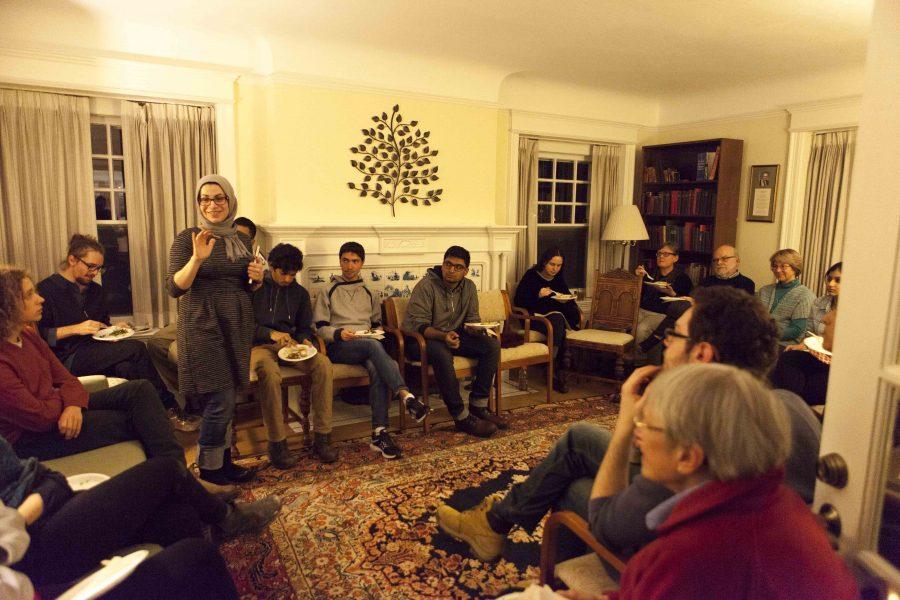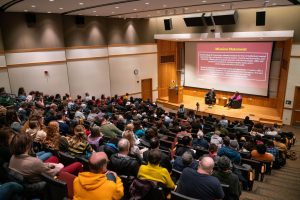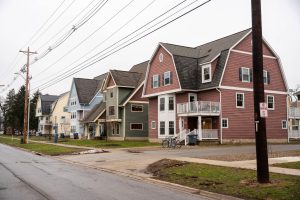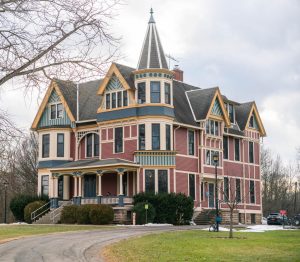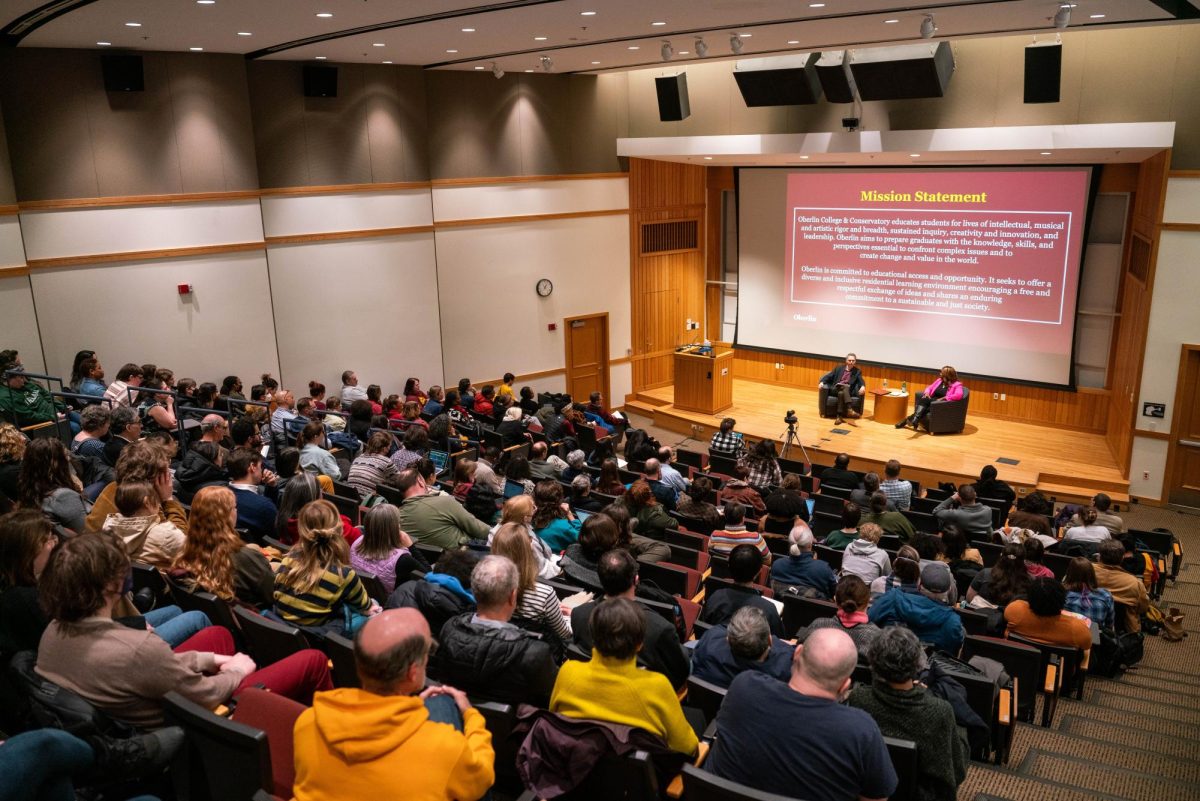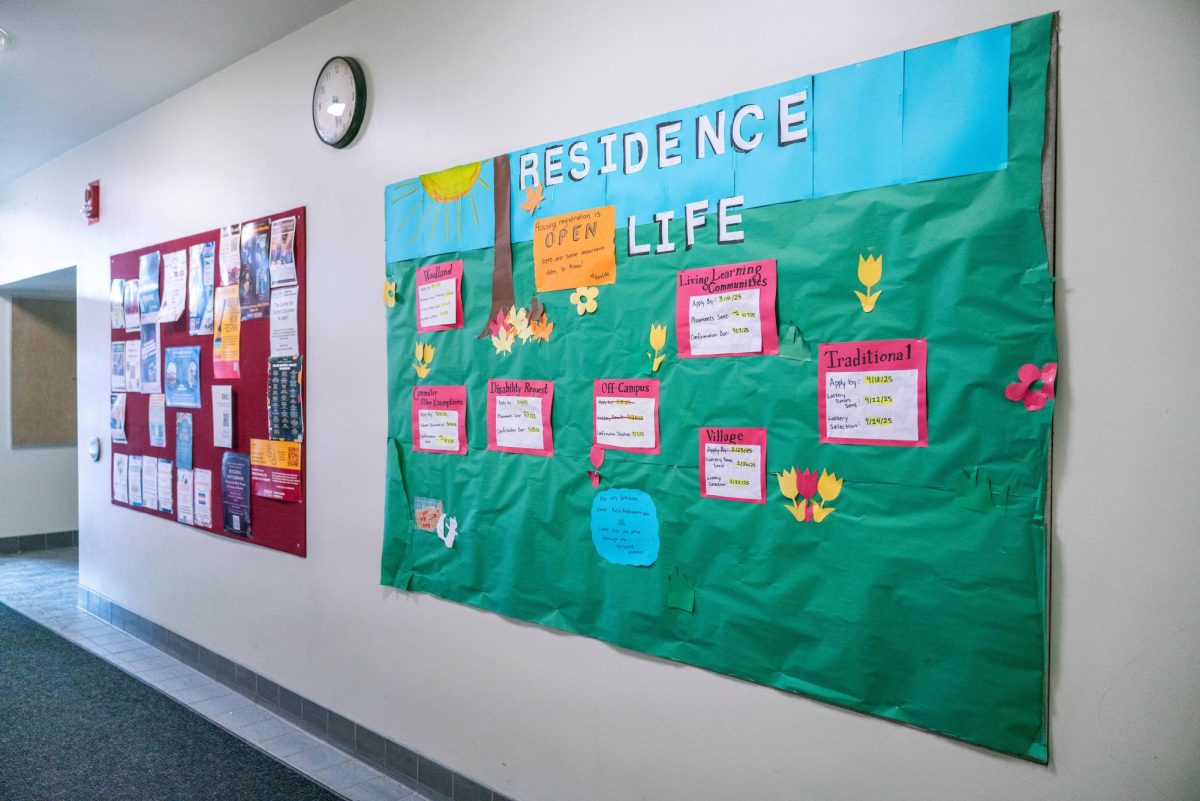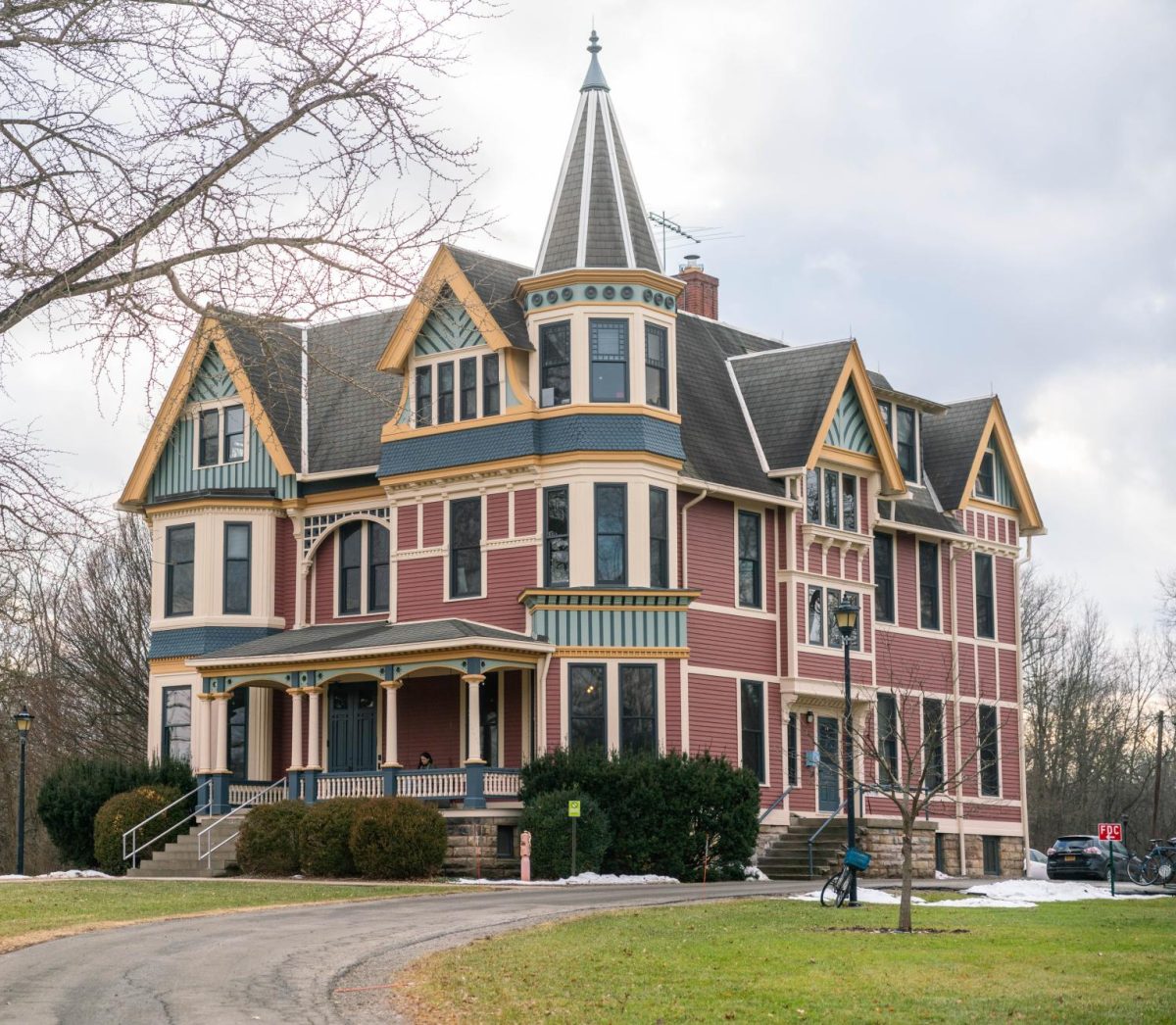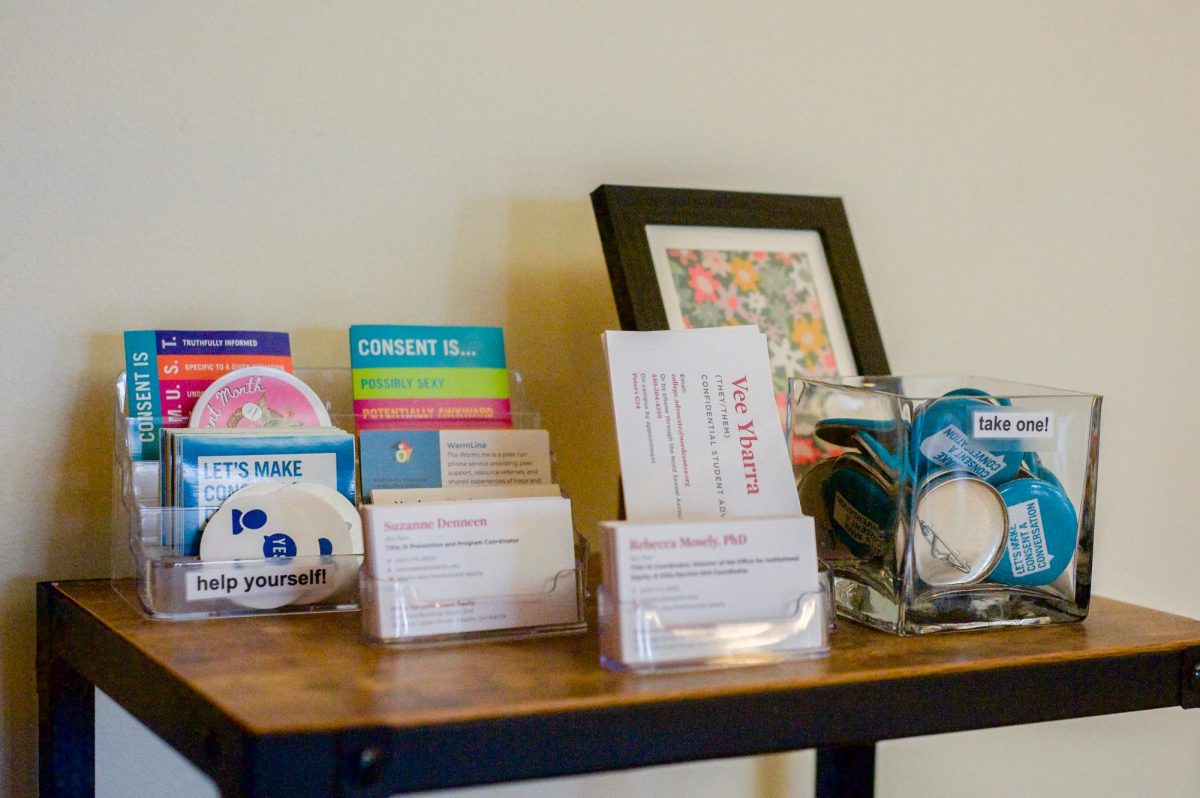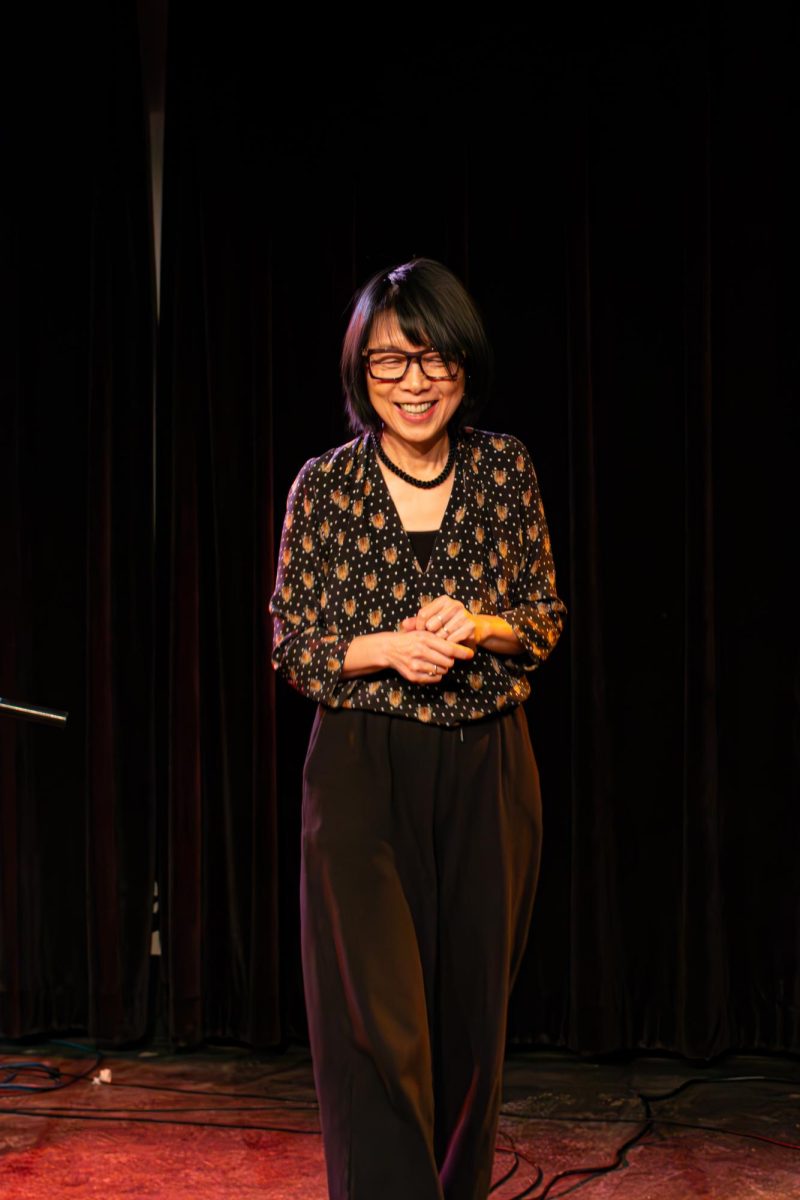Officials Reaffirm City’s Sanctuary Status
Photo by Bryan Rubin, Photo editor
Muslim Student Association Advisor Maysan Haydar speaks at the Office of Religion and Spiritual Life gathering for Oberlin’s Muslim community in Lewis House Wednesday. The gathering was intended to provide support and a space to voice concerns and ideas about protecting vulnerable Muslim students, faculty and staff.
February 3, 2017
In light of President Donald Trump’s executive actions to defund sanctuary cities and bar refugees from seven majority-Muslim countries last week, the city of Oberlin has committed itself to protecting its immigrant and refugee population.
Both City Council and community members expressed disdain over Trump’s executive action, which could potentially affect federal funding, since Oberlin has been a sanctuary city since 2009. Although each sanctuary city has its own procedures, the general goal is to shelter undocumented immigrants, primarily by prohibiting the use of municipal resources for enforcing federal immigration laws.
While Trump’s executive action threatens to cut federal funding to sanctuary cities, City Councilmember Kelley Singleton said that the financial implications might not affect Oberlin that much. According to Singleton, Oberlin gets a significant amount of its funding from the state, not the federal government — only about $500,000 out of the approximate $36.2 million budget is given to the city through the combination of direct and indirect federal funding per year. He added that risking that much money during Trump’s first term is not a profound risk to the city budget.
While the city’s resolution does not instruct police officers to disobey the law, it does not require anyone to reveal their legal status unless they become involved in federal matters.
“If anybody breaks the law, they’re going to get their due process, and if they happen to be [undocumented] that’s going to come out, and that’s a federal issue,” Singleton said. “Just like how you wouldn’t ask me for my citizenship, we wouldn’t ask anybody for their citizenship if they break a traffic law. Now, if I committed a felony and was arrested, then [my status] is going to come out, if I was an illegal alien or not.”
Singleton continued on to say that “ratting out” undocumented immigrants in Oberlin is a low priority. He emphasized that if Oberlin was actively searching for undocumented immigrants, some might fear approaching law enforcement to report crimes or seek help. Ultimately, Singleton said, prioritizing detainment and deportation would only hurt the community, especially since undocumented people are “overwhelmingly not criminals.” A report released by the American Immigration Council in 2015 provided evidence that immigrants are less likely to be incarcerated and engage in criminal behaviors than native-born Americans.
“Everybody has this idea of what an illegal alien is, which is not the reality,” Singleton said. “The [Trump] administration and previous administrations have done a good job of scaring people, and those aren’t really the facts. How many people who are now illegally here just overstayed their visas because they’ve created a good life? To group every person as a group of this stereotypical evil of illegal immigrant that is not only going to take your jobs but commit crimes — it’s just ridiculous.”
Other community leaders have echoed Singleton’s sentiments. Reverend David Hill of First Church, as well as Reverend Mary and Reverend Steve Hammond of Peace Community Church, among other religious leaders in Oberlin, have established their churches as sanctuaries for immigrants and refugees.
“Jesus welcomed the most vulnerable and got into a lot of trouble sometimes for the people he hung around with and the people he welcomed and the ways he responded to the political powers,” Mary Hammond said. “So following in the practice of Jesus means just being faithful to caring for every human being, their dignity, their rights and that we really are all one planet of people.”
While all three reverends said that they have not received any immigrants or refugees in need yet, their move is a statement and a continuation of refuge Oberlin has provided in the past. Mary Hammond mentioned that she and Steve Hammond were deeply involved in the “Overground Railroad” in the 1980s, which involved sheltering Central Americans in the U.S. as they awaited their asylum status in Canada. Hill recalled how Oberlin was an asylum in its involvement with the Underground Railroad at its founding.
Hill also recalled an Iraqi College student who graduated last spring. He said that she often came to First Church’s Wednesday community dinners, and cooked food from her home country one time. Hill does not know where she is today, but said he considers how she would be endangered if she was still at Oberlin.
“If she was still here and she had gone home to visit her family and was hoping to come back for the spring semester, she would not have been able to return,” Hill said.
First Church is also holding a multi-week study on white privilege, which will run Wednesdays at 6:45 p.m. from Feb. 8 to late April. The Oberlin Office of Religious and Spiritual Life is coordinating with Hill as the church sponsors the study. Hill said he thinks that this study is important because most of First Church’s congregation is white, hoping it will compel people to recognize their privilege and how the church can continue serving communities in need, including immigrants and refugees.
Mary Hammond said that she has been working to reach out to cities with communities that will be more vulnerable to Trump’s immigration restrictions, such as Lorain, which has a more prominent Latinx population than Oberlin. She said Peace Community Church would act as a “support church,” attempting to identify needs that religious institutions and parishes like theirs can do to meet them. She added that in reaching out to other communities, she also hopes to explain to neighboring areas why Oberlin is a sanctuary city.
Hammond said that after Trump was elected, she, Steve Hammond, and Liz Burgess, owner of downtown Oberlin’s Ginko’s Gallery, established a Facebook group called “Oberlin Ahead” to create a way for community members to share events and ways of mobilizing against unfavorable actions that Trump may take.
The College’s sanctuary campus efforts still stand too. College President Marvin Krislov wrote an email to the community in December announcing a list of steps the College would take in an attempt to ensure the safety of undocumented students. More recently, Krislov addressed Trump’s executive order in another email to students, faculty and staff Sunday, noting that the administration was in communication with those potentially affected by the ban.
Oberlin’s Muslim Student Association Advisor Maysan Haydar said that there is currently a first-year student from Iraq, but they did not go home for Winter Term. Haydar said she was still concerned that the ban could affect the student’s ability to travel in the future, adding that she and others want to further support students in every way they can.
“There’s nothing we can plan for,” she said. “We’re trying to assess the situation before making certain plans,” she continued, saying that it is up to students to voice what they need from the College in order to feel best protected.


